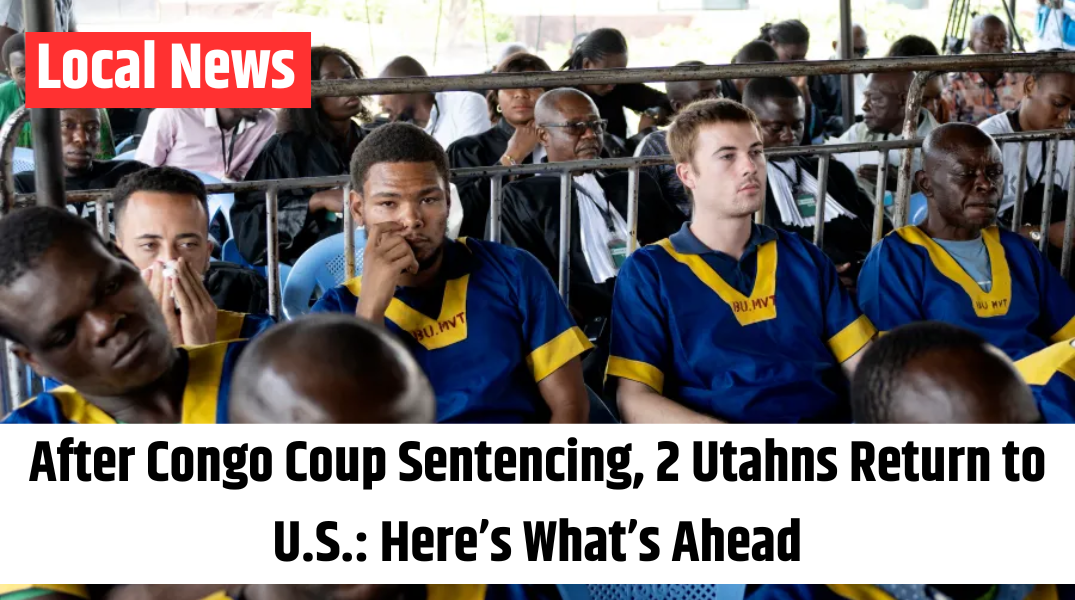
Three American citizens, including two men from Utah, have been returned to the United States following their convictions in a failed coup attempt in the Democratic Republic of Congo (DRC). The DRC presidency allowed the transfer, enabling the men to serve their life sentences in federal custody on American soil.
Among the three repatriated individuals are Utahns Tyler Thompson and Marcel Malanga. The third American is Benjamin Reuben Zalman-Polun, 36, who was reportedly involved with Christian Malanga—the alleged coup leader—through a gold mining venture. Malanga, Marcel’s father, was killed during the attempted uprising on May 19, 2024.
Thompson’s family maintains he had no prior knowledge of the coup plot, believing instead that he was heading to South Africa and Eswatini on an all-expenses-paid trip with Marcel. The two young men, however, ended up in Congo and were later convicted for their roles in the violent operation. According to Marcel, he was coerced into joining the effort under the threat of death.
Following months of incarceration and legal uncertainty, the DRC agreed to commute their original death sentences to life in prison and transfer them to U.S. custody. The handover took place on Tuesday, April 8.
In a statement issued by Thompson’s legal team, his family expressed relief and appreciation.
“We are thankful to everyone who played a part in bringing Tyler and the others back to the U.S. following the commutation of their death sentences,” the statement read. “Our focus now is on Tyler’s physical and mental recovery after nearly a year in a Congolese prison.”
Attorney Skye Lazaro, who has represented Thompson throughout the legal ordeal, acknowledged the challenges that lay ahead.
“What happens next is still unclear and depends on how federal authorities choose to proceed,” she said. “Right now, our priority is to assess Tyler’s well-being and prepare for the legal steps to follow.”
Lazaro collaborated closely with Congolese legal counsel and U.S. officials, navigating difficult barriers including time zone differences, language challenges, and an unfamiliar legal system.
While the repatriation is a rare move, legal experts say it may not guarantee leniency. Utah-based criminal defense attorney Clayton Simms noted that transfers like this are highly unusual.
“Typically, if someone is convicted abroad, they remain in that country to serve their sentence,” Simms explained. “This appears to be a special case involving a negotiated return.”
He added that the specific conditions of the agreement between the U.S. and DRC have not been publicly disclosed, making it difficult to predict outcomes. However, Simms said there may be room for reconsideration of the men’s sentences in the U.S., particularly if evidence suggests they were misled or forced to participate in the coup under threat of violence.
“There’s a potential for sentence reductions or even a pardon, depending on what they knew before arriving in Congo,” Simms said.
Despite the possibility of leniency, federal officials are standing firm on accountability. A spokesperson for the U.S. State Department reaffirmed their stance on justice.
“We continue to condemn the May 19 armed attacks and support the DRC’s efforts to hold those responsible accountable,” said Tammy Bruce of the State Department. “At the same time, we advocate for fair legal treatment and humane conditions for the U.S. citizens involved.”
As the men return to U.S. soil, their futures remain uncertain—but their families are grateful they are back home .




